Photos:: Recent Nobel Peace Prize laureates
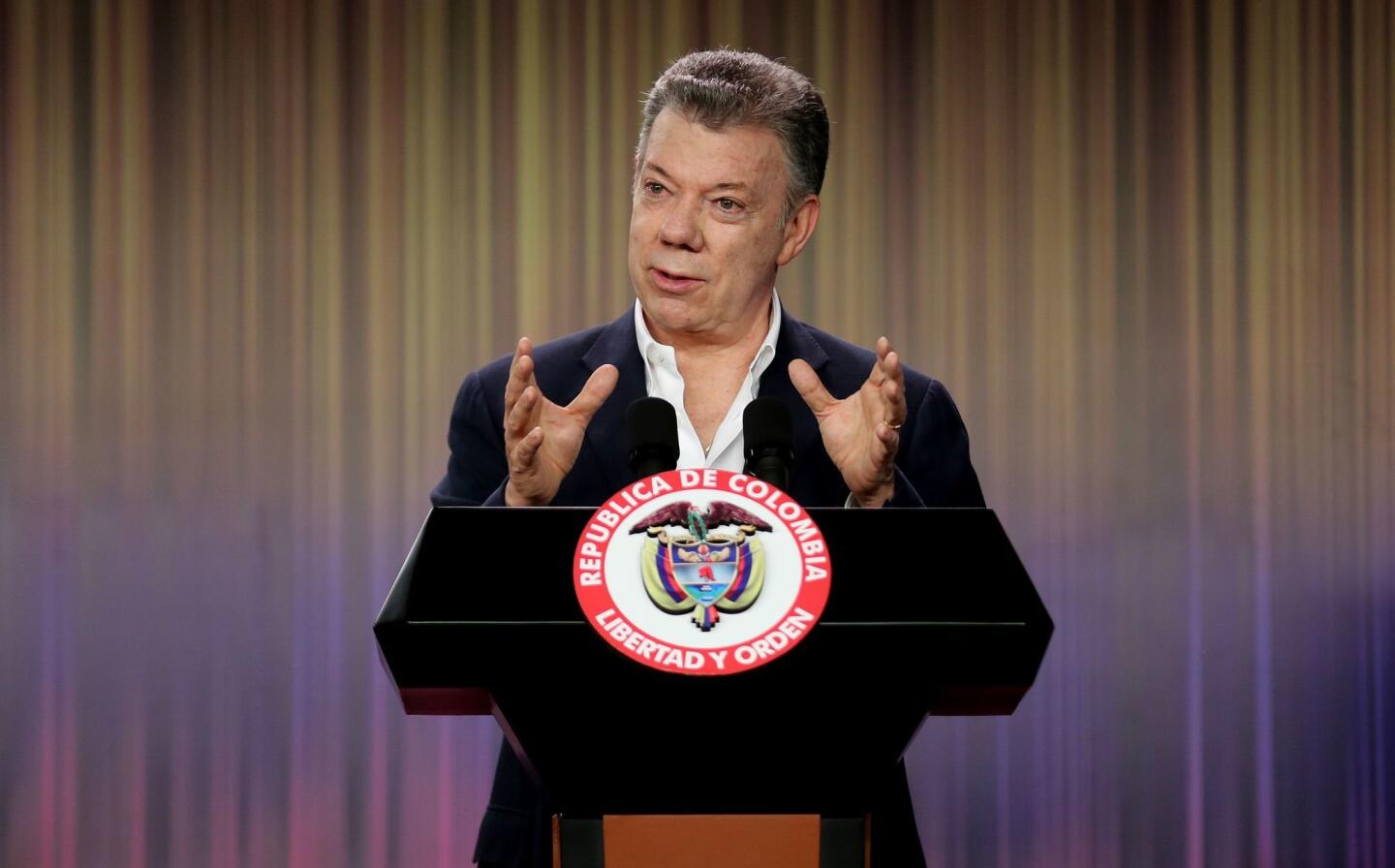
Colombian President Juan Manuel Santos speaks at the inauguration of the One Young World summit in Bogota, Colombia, in October 2017. Santos won the 2016 Peace Prize for his efforts to negotiate a peace treaty with the country’s FARC rebel movement. (Leonardo Muñoz/EPA-EFE/REX/Shutterstock )
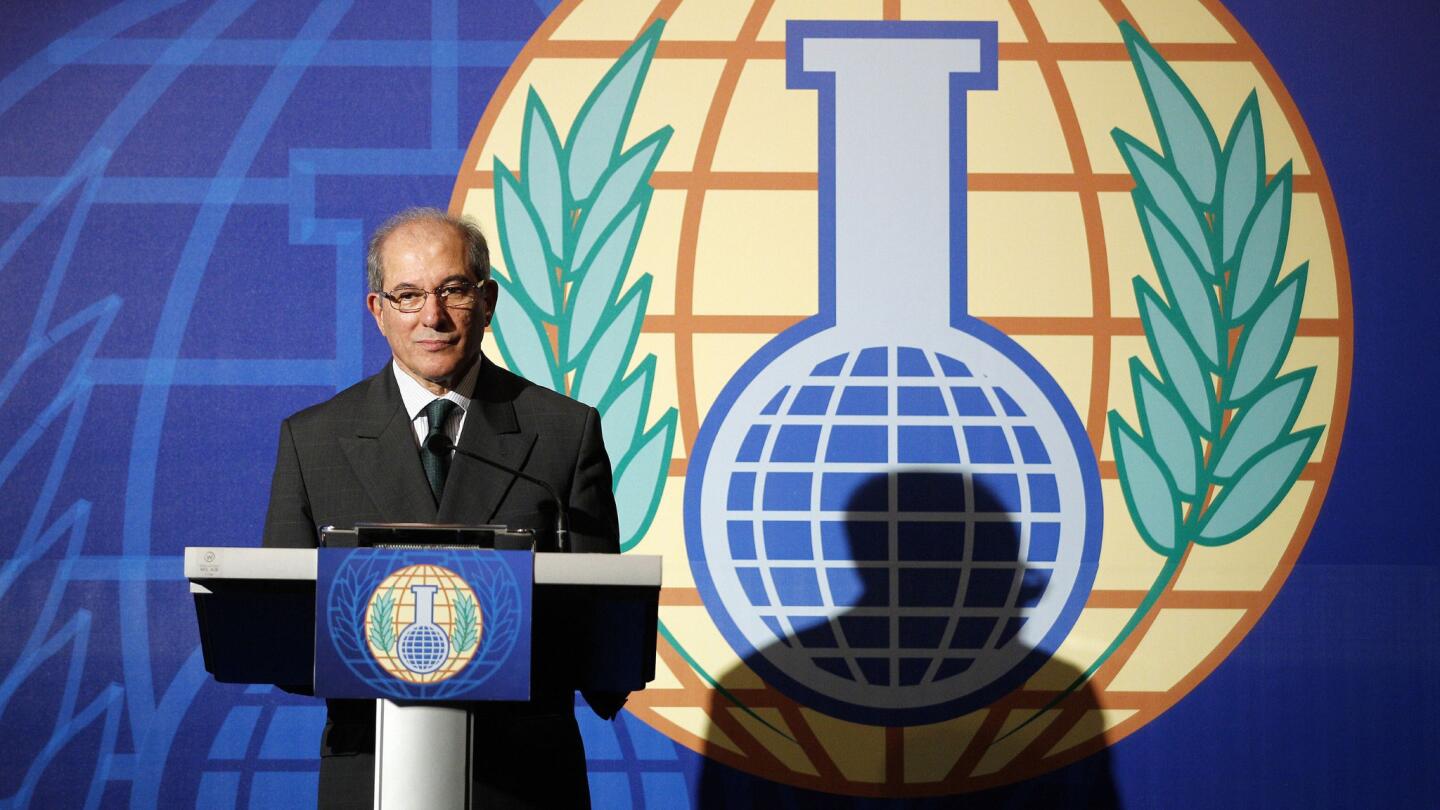
Organization for the Prohibition of Chemical Weapons Director-General Ahmet Uzumcu speaks in The Hague in 2013. The watchdog group has overseen the destruction of Syria’s chemical arsenal. (Bas Czerwinski / AFP/Getty Images)
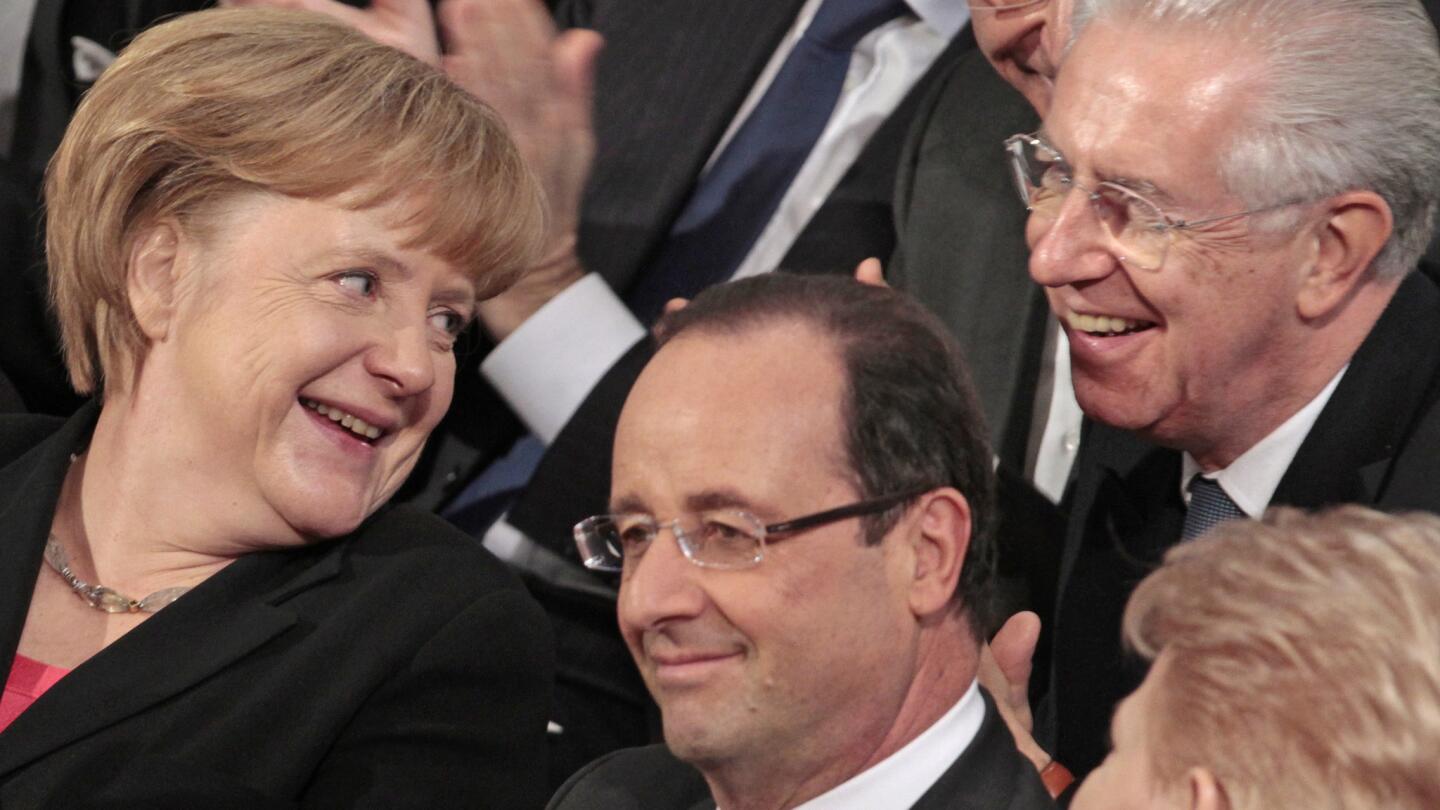
German Chancellor Angela Merkel talks with Italy’s Prime Minister Mario Monti, right, and French President Francois Hollande during a ceremony in Oslo, Norway, in 2012. The European Union received the award for promoting “peace and reconciliation, democracy and human rights” in Europe. (Yves Logghe / Associated Press)
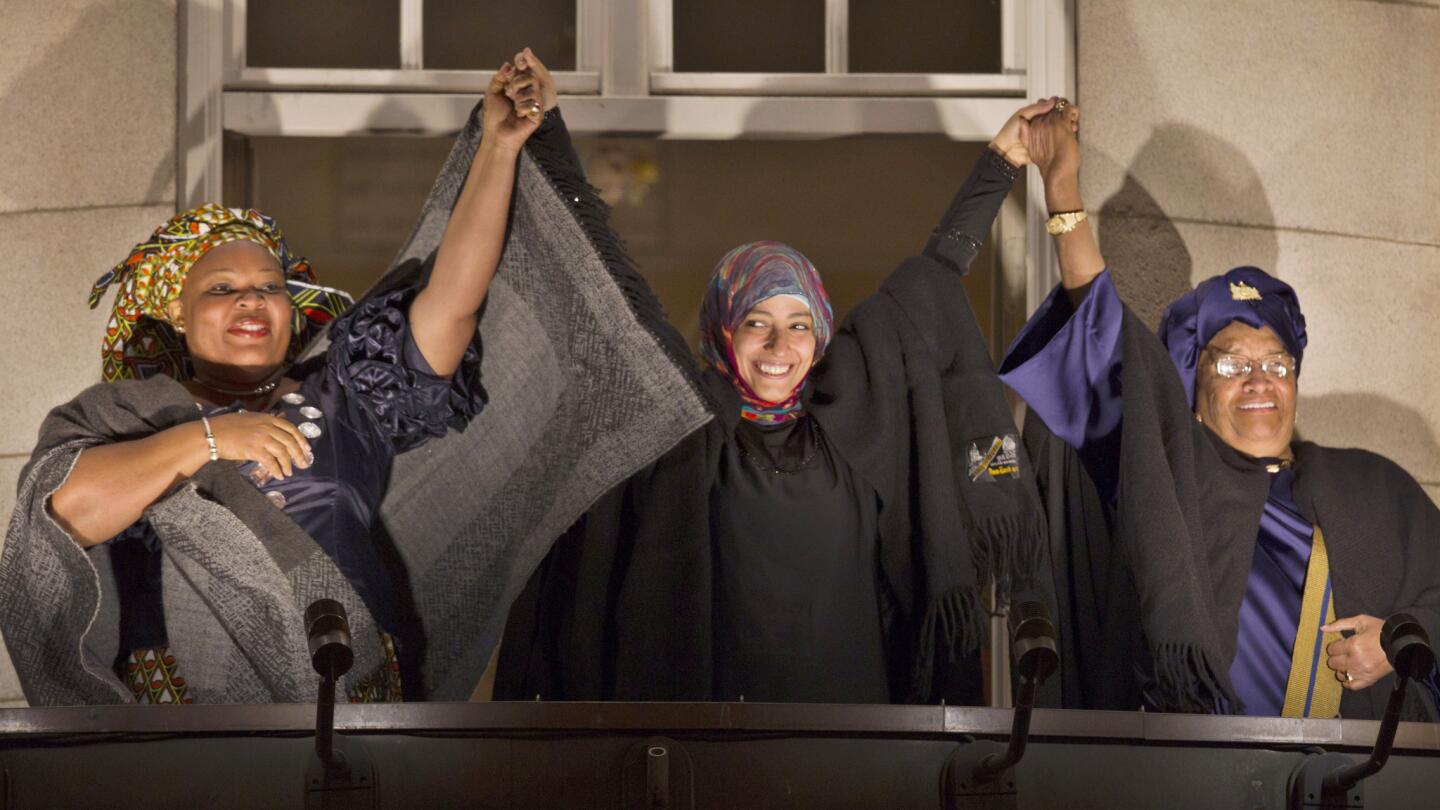
Nobel Peace Prize laureates, from left, Leymah Gbowee of Liberia, Tawakkol Karman of Yemen, and Liberian president Ellen Johnson Sirleaf hold hands on a hotel balcony in Oslo, Norway, in 2011. They were awarded the prize for championing women’s rights. (Fredrik Varfjell / Associated Press)
Advertisement
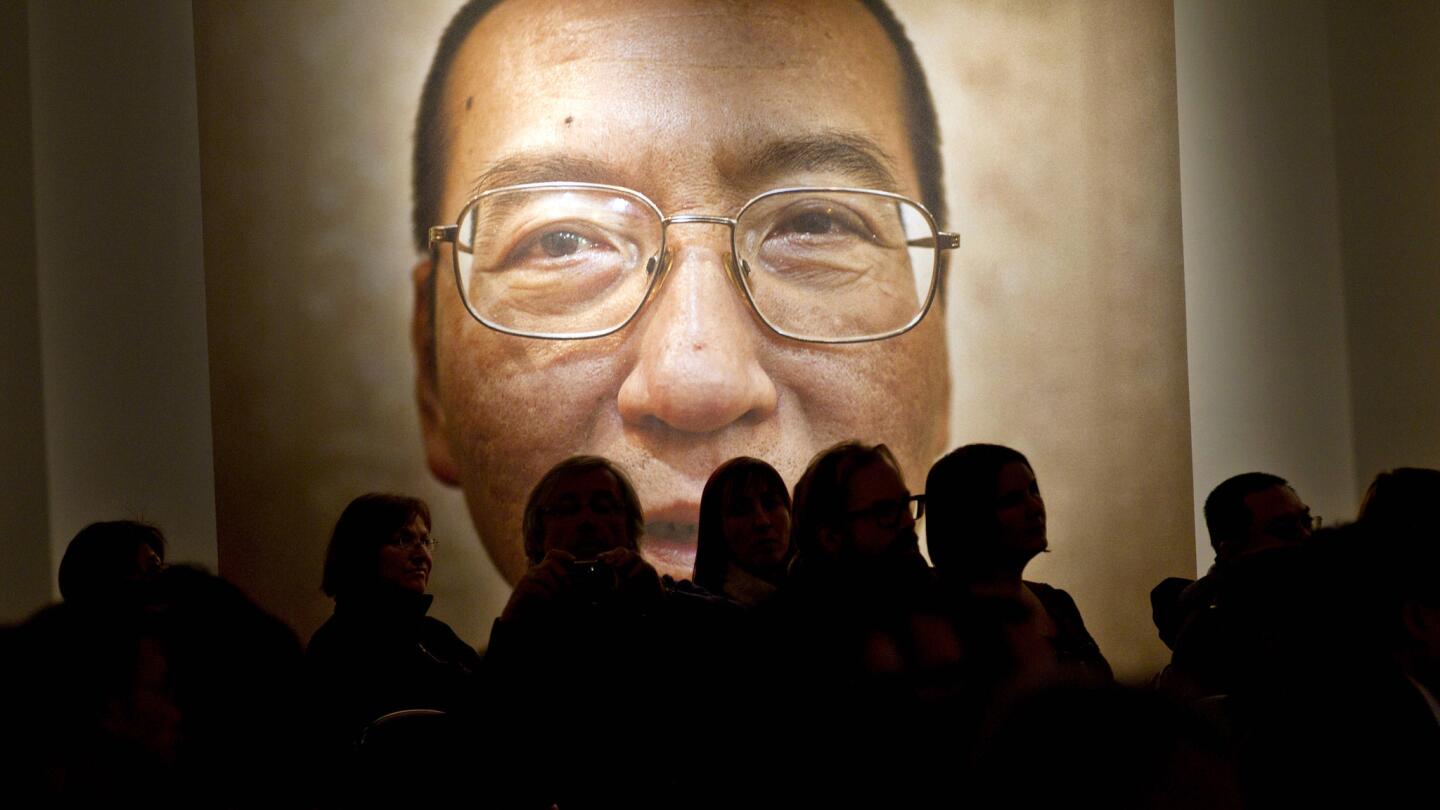
A picture of Liu Xiaobo, who is imprisoned in China, is seen inside the Nobel Peace Center in Oslo on Dec. 10, 2010. (Daniel Sannum-Lauten / AFP/Getty Images)
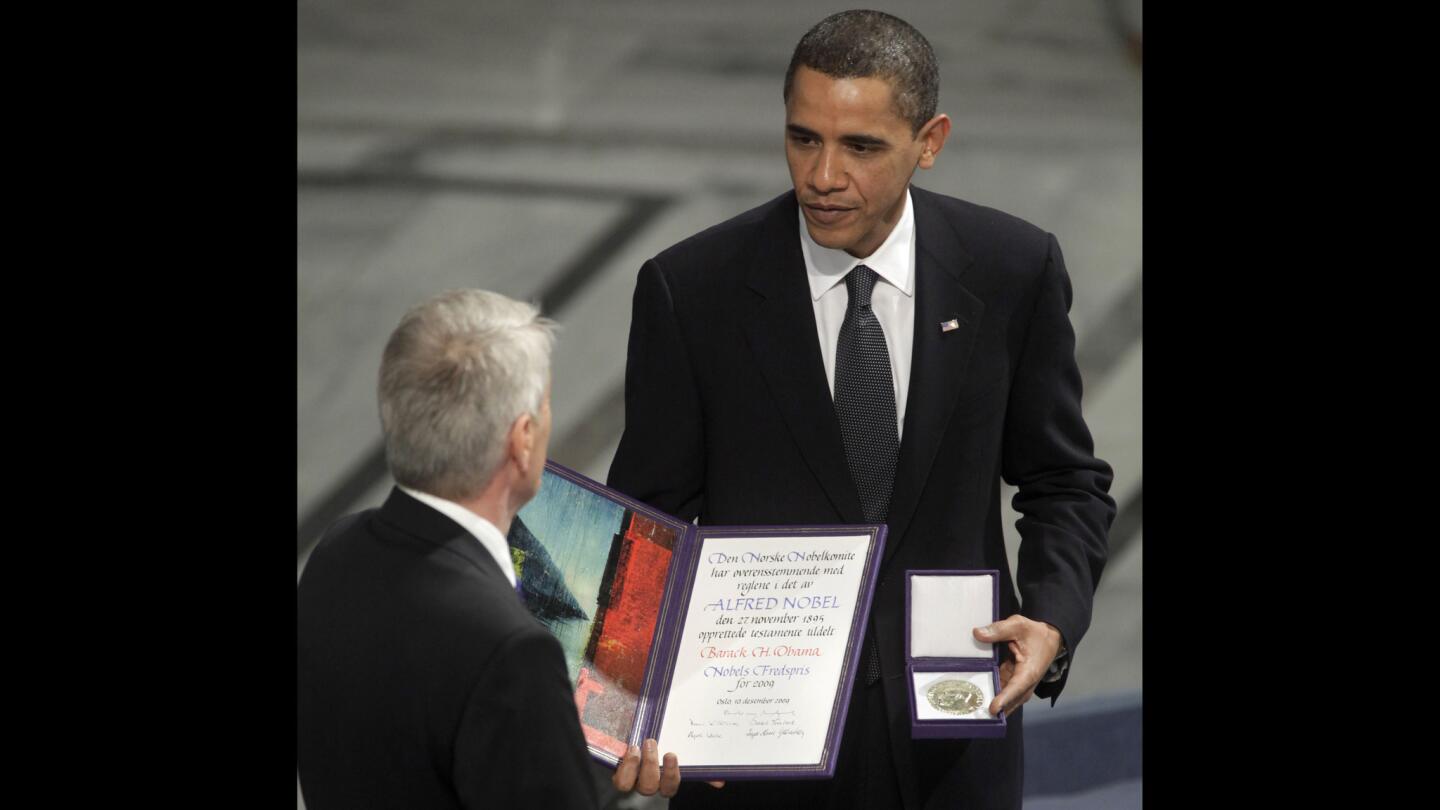
U.S. President Barack Obama was honored by the Nobel committee after just nine months in office. The Nobel board said the award was for “his extraordinary efforts to strengthen international diplomacy and cooperation between peoples. The committee has attached special importance to Obama’s vision of and work for a world without nuclear weapons.” (Odd Andersen / Associated Press)
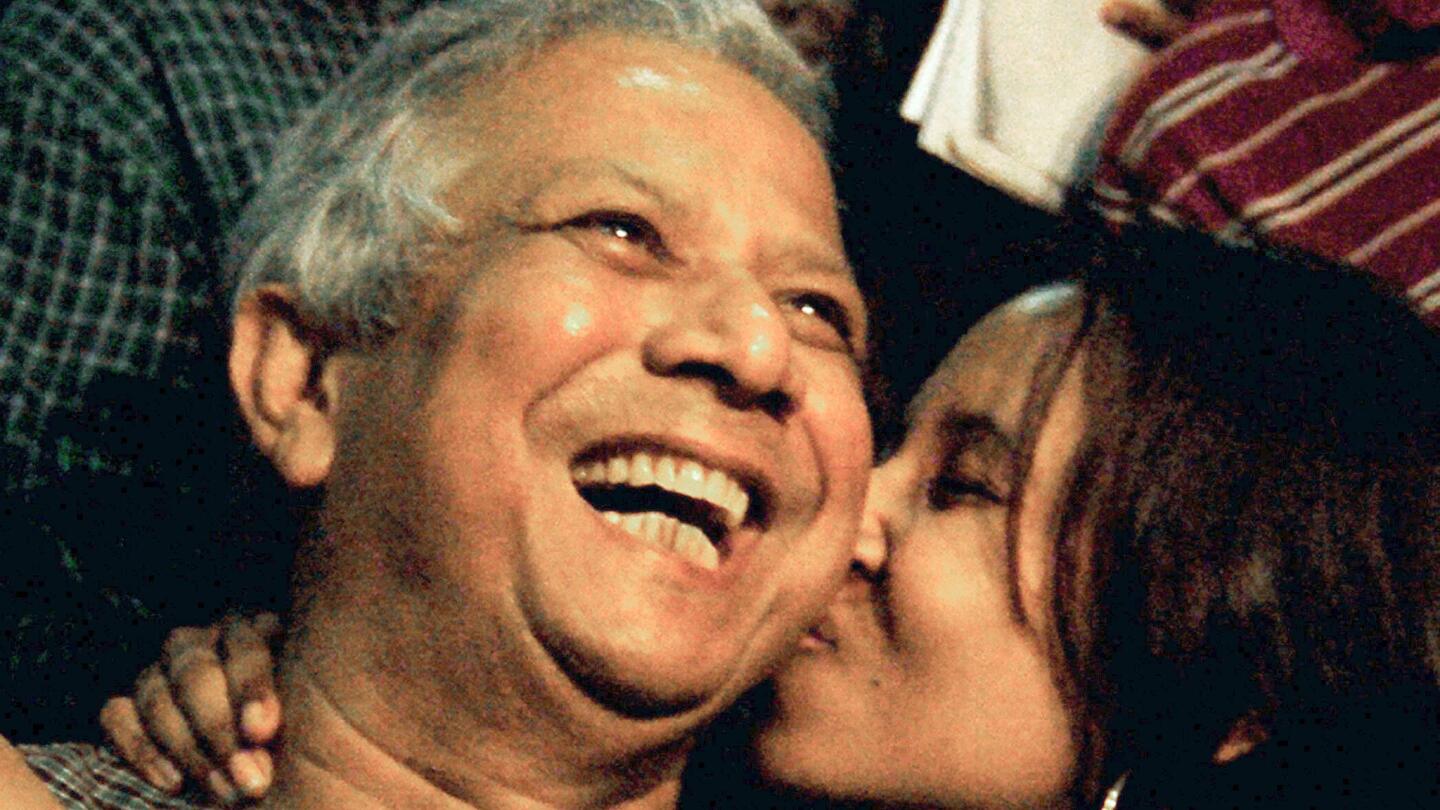
The prize was shared by Muhammad Yunus and Grameen Bank “for their efforts to create economic and social development from below.” Yunus founded the Grameen Bank in his native Bangladesh in 1983, “fueled by the belief that credit is a fundamental human right,” the committee said. He and the bank worked by providing micro-credit -- small loans to the poor that, along with teaching them a few basic financial principles, would help them help themselves. (Farjana K. Godhuly / AFP / Getty Images)
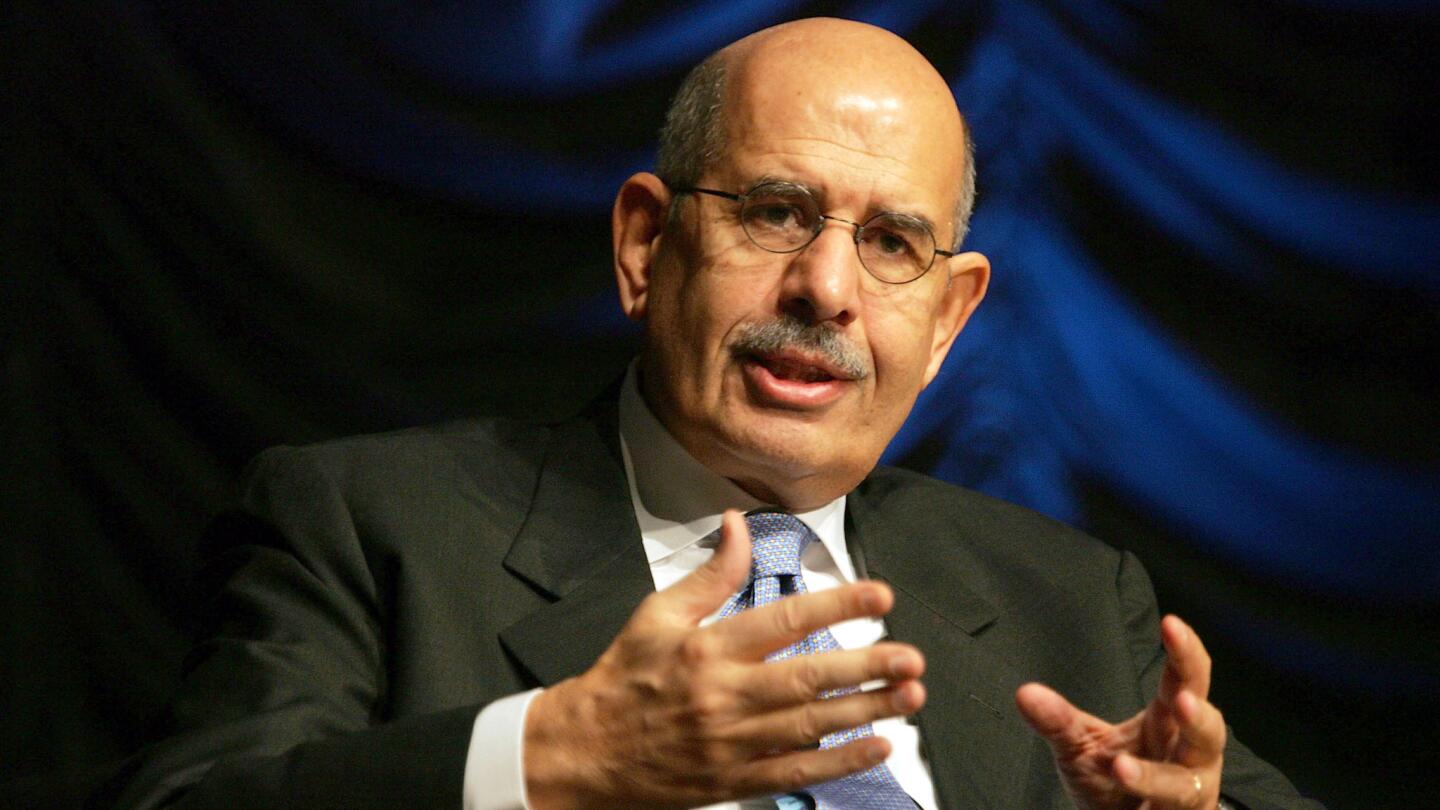
The Nobel committee honored the International Atomic Energy Agency and its director general, Mohamed ElBaradei, “for their efforts to prevent nuclear energy from being used for military purposes and to ensure that nuclear energy for peaceful purposes is used in the safest possible way.” ElBaradei, of Egypt, became director general of the IAEA in 1997. According to its website, the agency’s inspectors seek to verify that nuclear materials are not used for military purposes; it also attempts to “mobilize peaceful applications of nuclear science and technology” and aids nations in upgrading nuclear safety and security. (Joe Raedle / Getty Images)
Advertisement
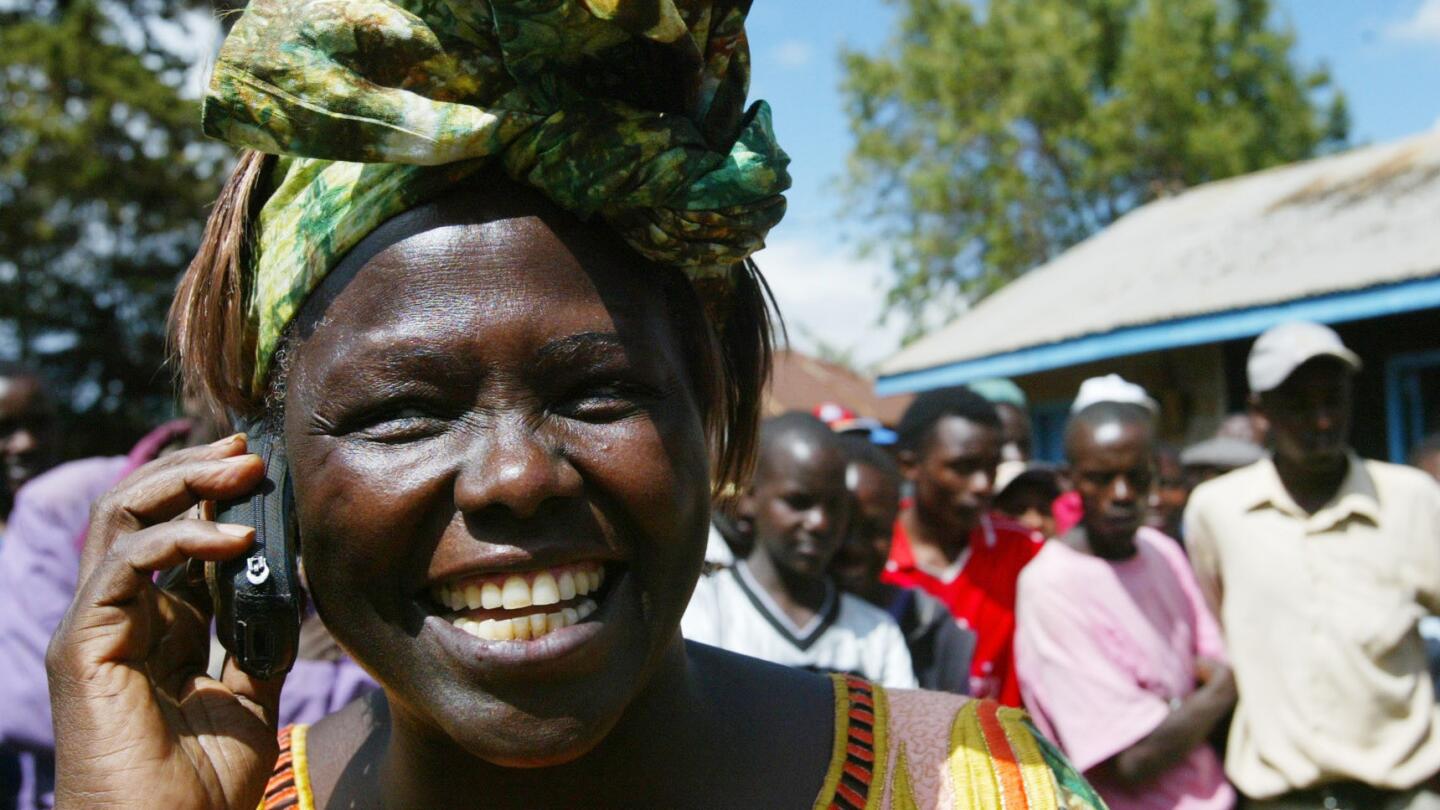
Wangari Muta Maathai of Kenya was the first African woman to win the peace prize. Maathai’s Green Belt Movement had planted about 30 million trees to halt deforestation in parts of Africa. The Nobel committee noted “her contribution to sustainable development, democracy and peace” using methods that embraced “human rights and women’s rights in particular.” The Green Belt Movement was credited with creating thousands of jobs while providing a sustainable source of firewood for families. (Karel Prinsloo / Associated Press)
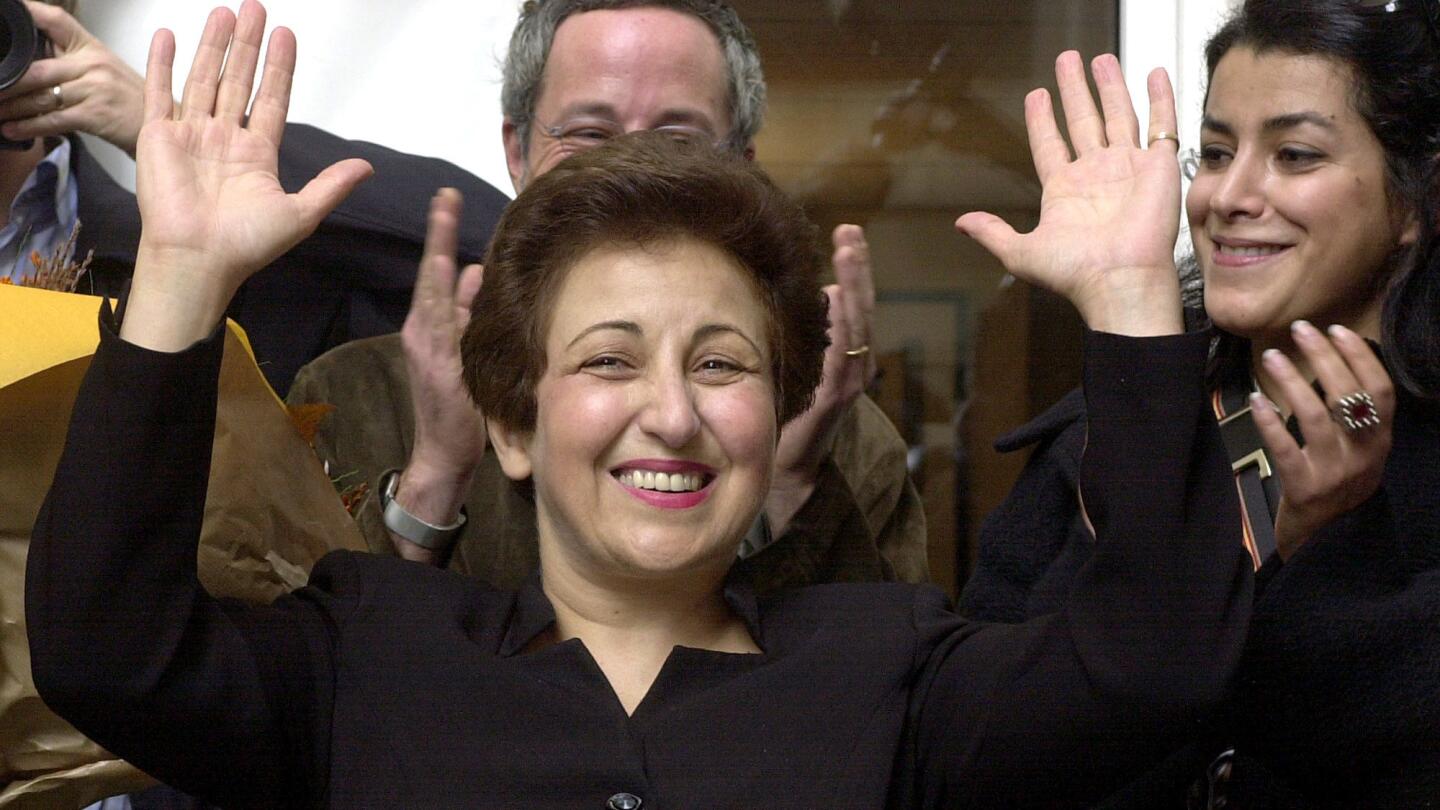
An Iranian, Shirin Ebadi -- a lawyer, judge, lecturer, writer and activist -- was awarded the prize for her pro-democracy and human rights efforts in her native land. She has focused especially on the struggle for the rights of women and children. (Francois Mori / Associated Press)
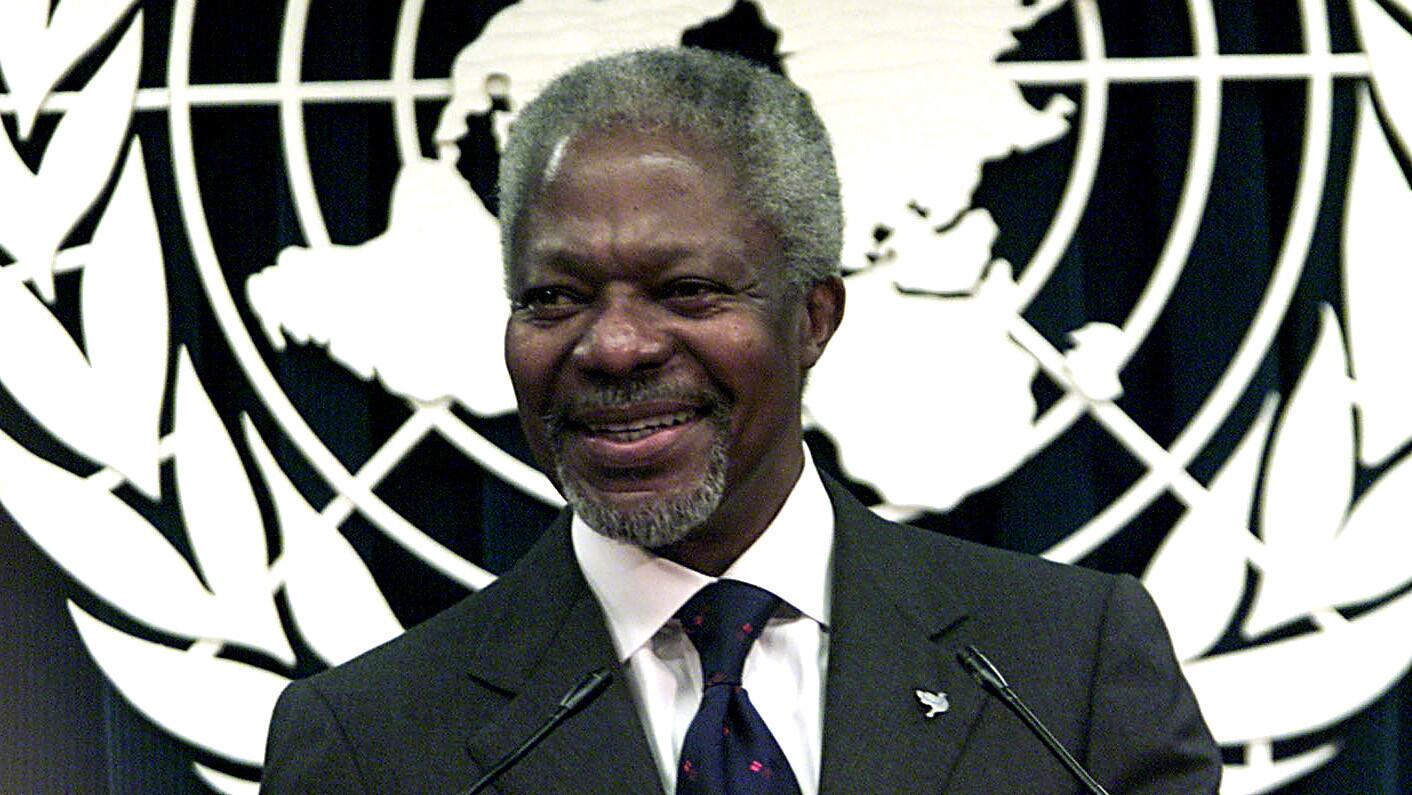
The prize was awarded in 2001 in equal portions to the United Nations and to its secretary-general, Kofi Annan, for their work toward a better- organized and more peaceful world. The U.N. was cited as being at the forefront of efforts to achieve peace and security in the world, and of the international mobilization aimed at meeting the world’s economic, social and environmental challenges. Annan devoted almost his entire working life to the U.N. As secretary-general, he confronted emerging challenges such as HIV/AIDS and international terrorism. (Gary Friedman / Los Angeles Times)
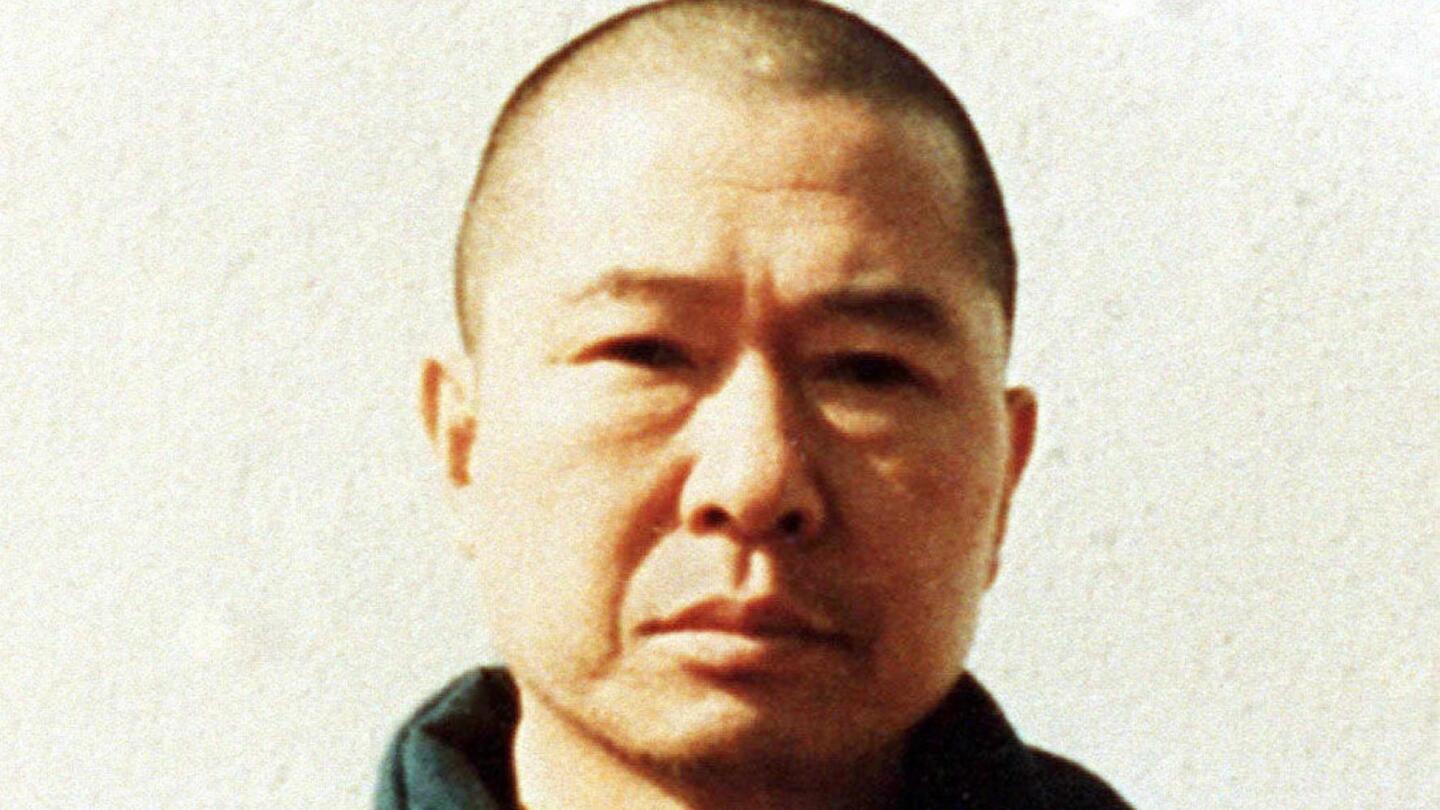
As a longtime opposition leader, Kim survived assassination attempts and a death sentence to become president of South Korea. His “sunshine policy” attempted to overcome more than 50 years of war and hostility between North and South Korea. His visit to North Korea gave impetus to a process which had reduced tension between the two countries. In this 1981 photo, Kim, then an opposition activist, reads a book at the Chongju prison in South Korea while serving a life sentence for an insurrection plot. (AFP / Getty Images)
Advertisement
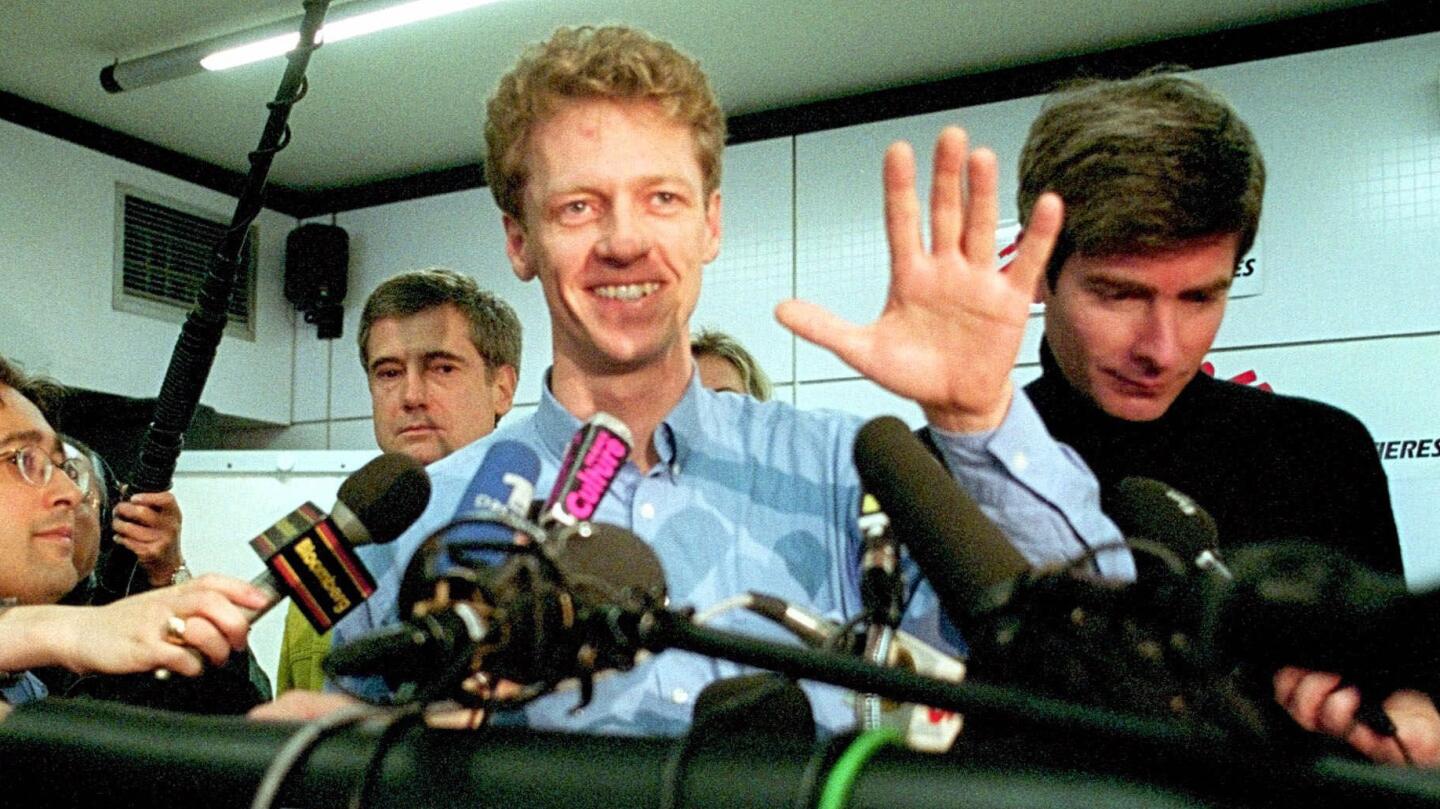
Since its foundation in the early 1970s, Doctors Without Borders has adhered to the principle that all victims of disaster, whether natural or human in origin, have a right to professional assistance, given as quickly and efficiently as possible without regard to national boundaries, political circumstances or sympathies. Doctors Without Borders officers James Orbinski, left, and Philippe Biberson speak at a news conference after the group won the Nobel Peace Prize. (Remy De La Mauviniere / Associated Press)
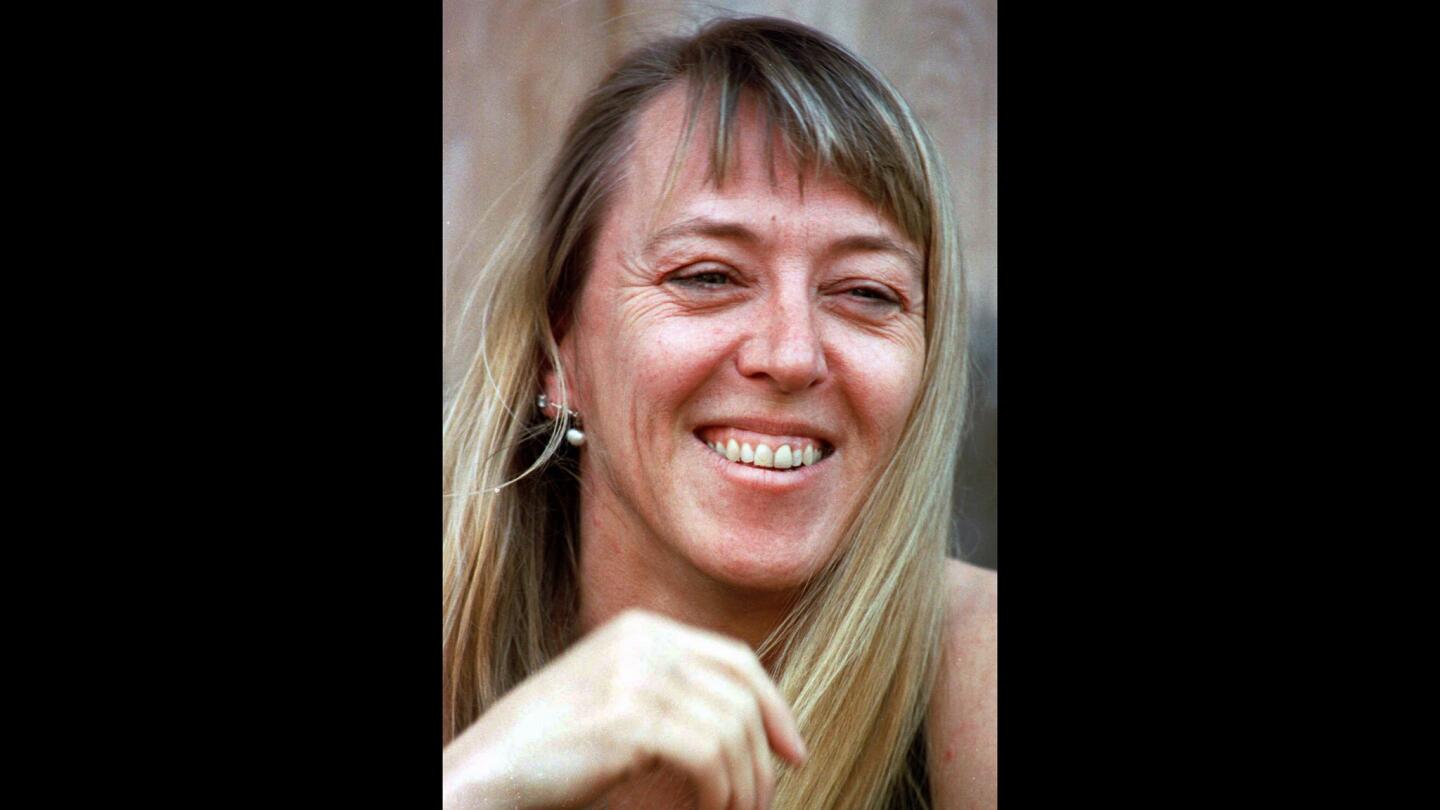
The International Campaign to Ban Landmines and the campaign’s coordinator, Jody Williams, were honored for their work toward the banning and clearing of anti-personnel mines. They started a process which changed a ban on anti-personnel mines from a vision to a feasible reality. Williams is shown as she talks with reporters at her home in Putney, Vt., on the day she won the prize. (Toby Talbot / Associated Press)
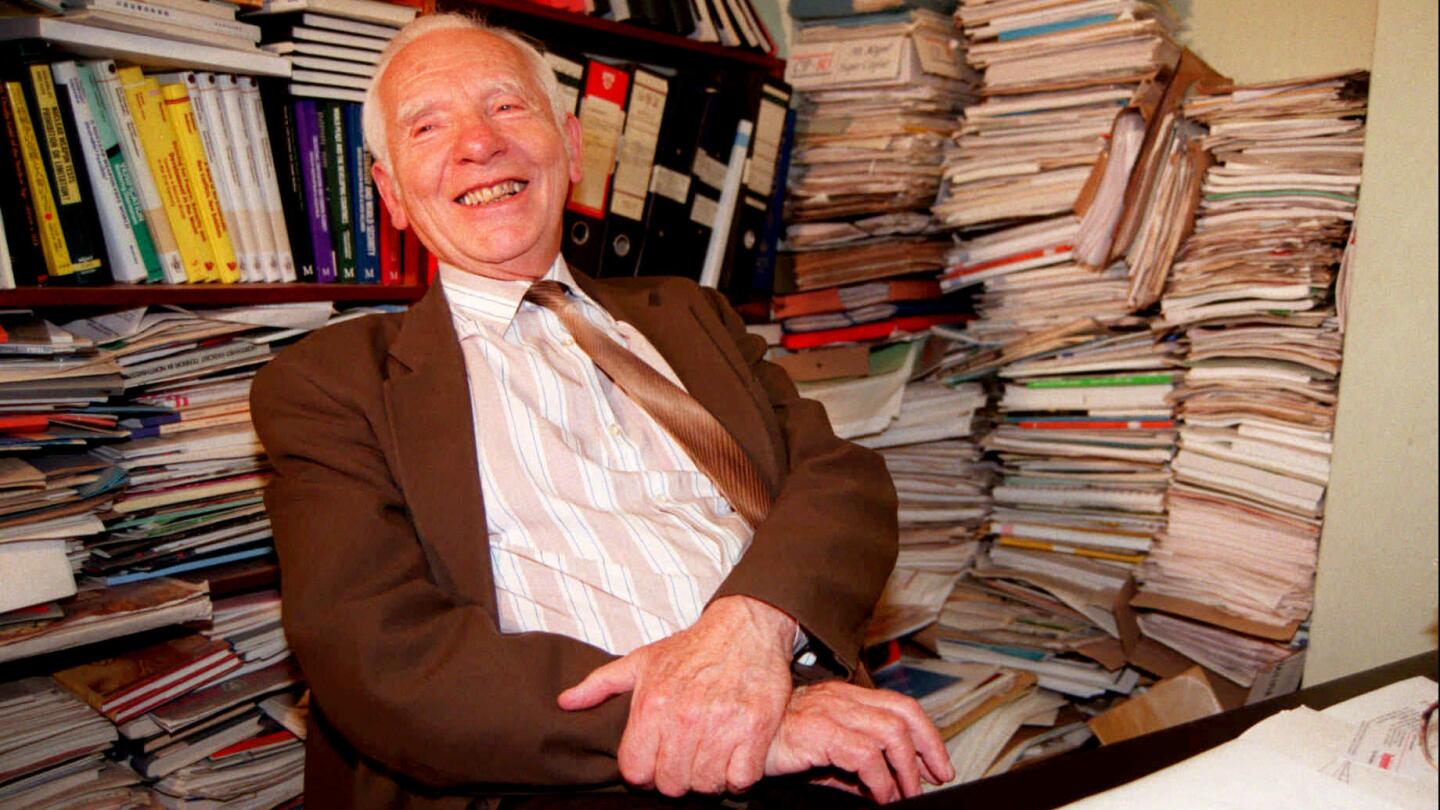
Anti-nuclear physicist Joseph Rotblat, and the Pugwash Conferences on Science and World Affairs, which he founded, shared the prize in 1995 for their efforts to diminish the part played by nuclear arms in international politics and, in the longer run, to eliminate such arms. (Charles Miller / Associated Press)
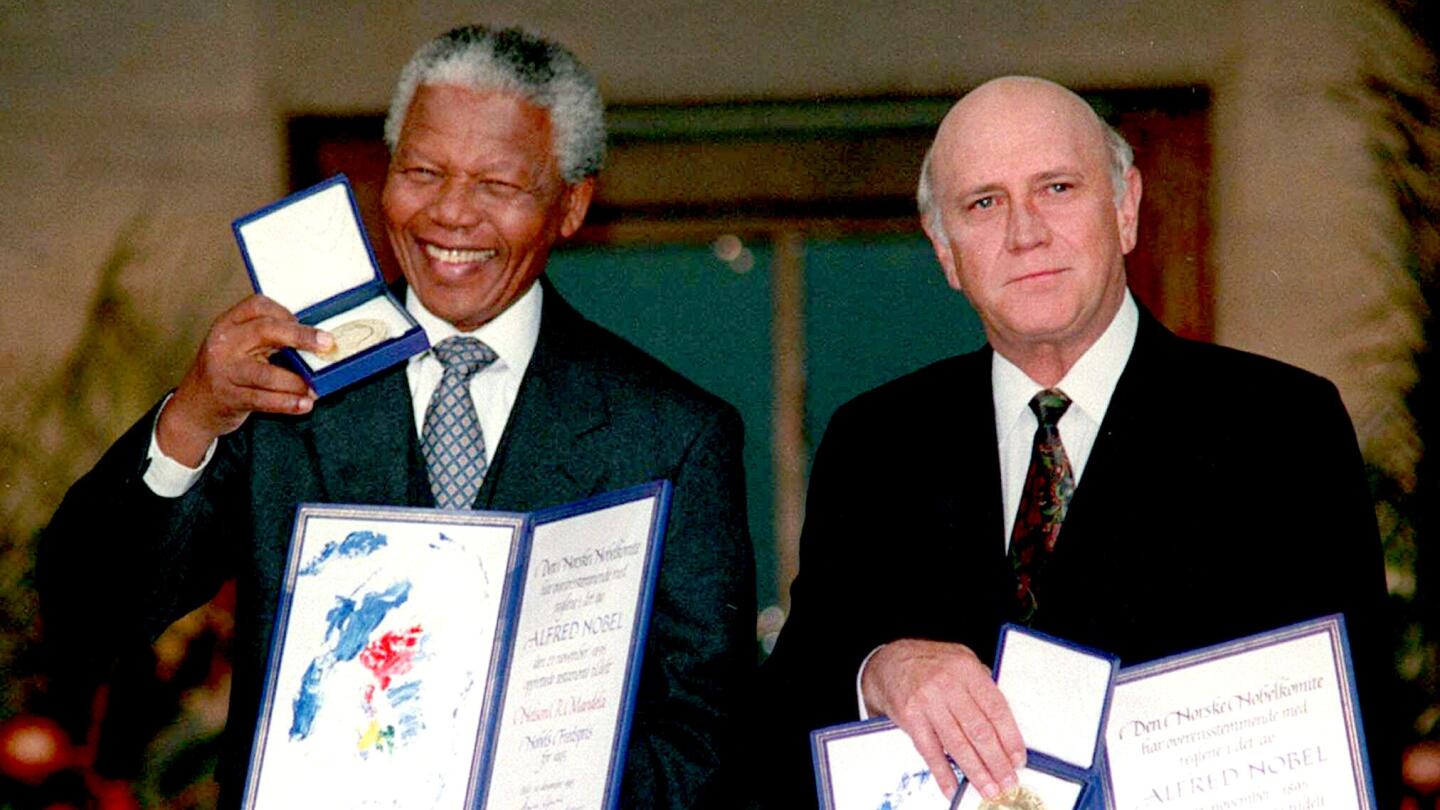
The Nobel committee lauded the leaders of South Africas two largest political organizations for “their work for the peaceful termination of the apartheid regime, and for laying the foundations for a new democratic South Africa.” (Jon Eeg / Associated Press)
Advertisement
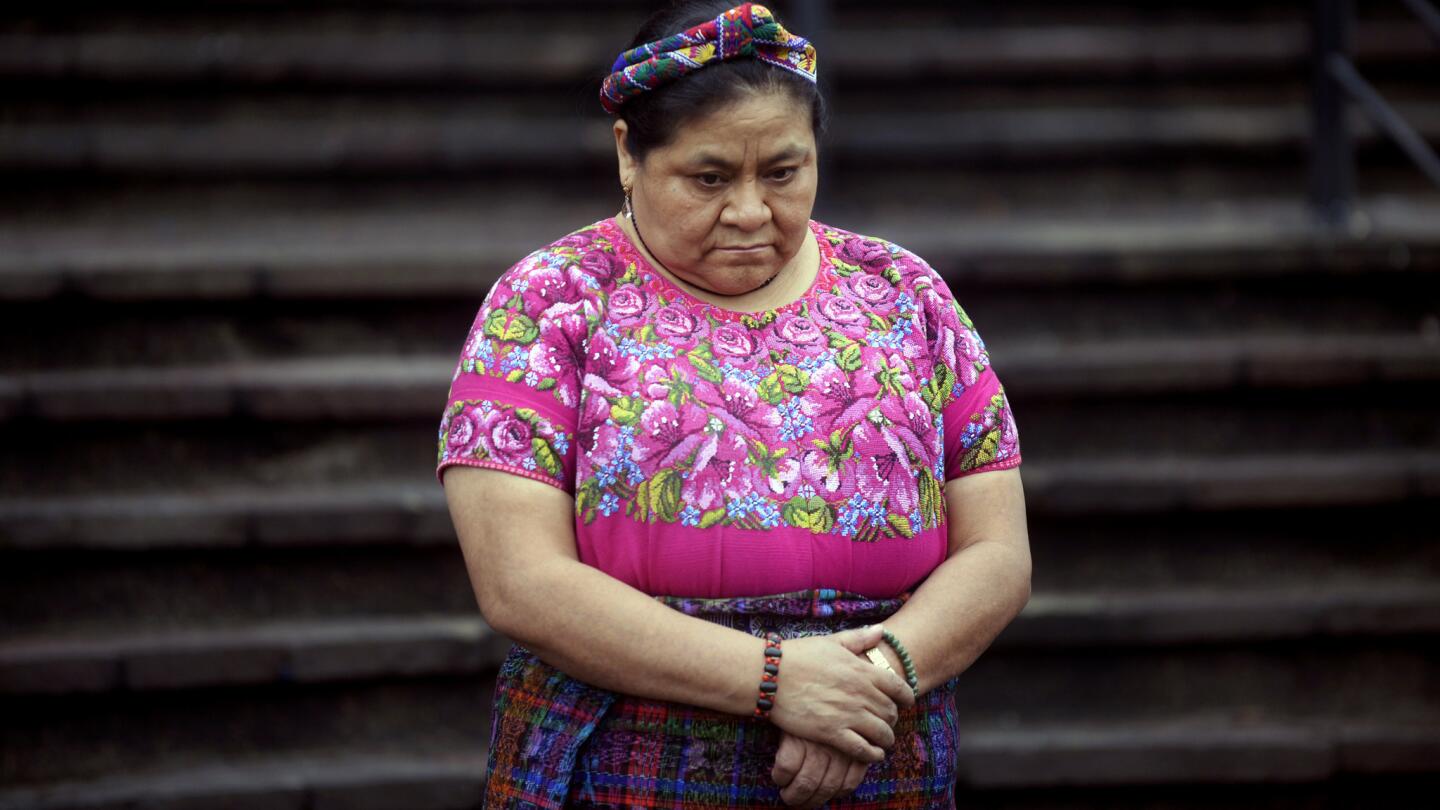
Guatemalan activist Rigoberta Menchú Tum, whose parents were among tens of thousands of Indians killed in her country’s civil war, and her Peasant Unity Committee struggled for Indian land rights and better wages for farmworkers. The Nobel committee cited her work for social justice and ethno-cultural reconciliation based on respect for the rights of indigenous peoples.” (Johan Ordonez / AFP / Getty Images)
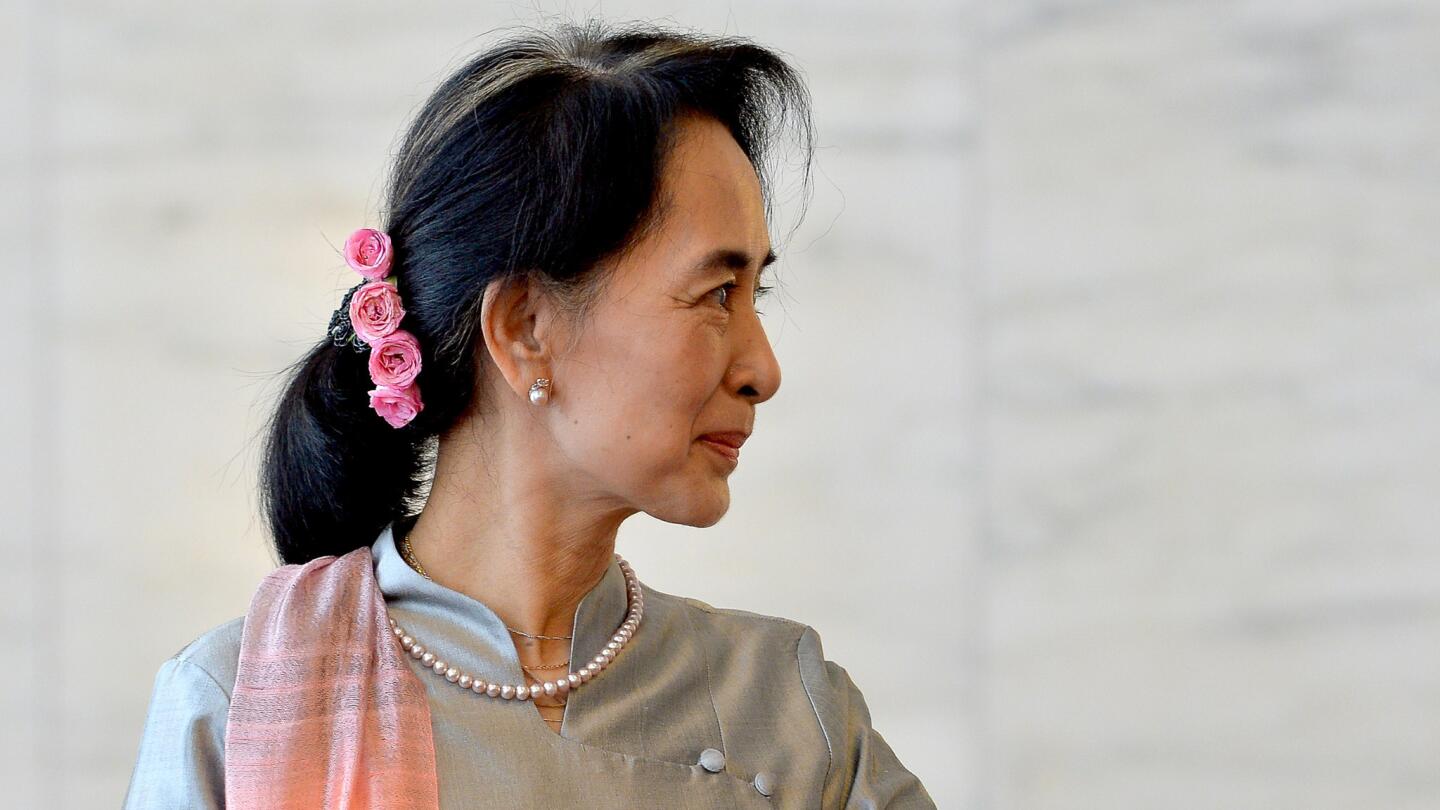
Aung San Suu Kyi is an Oxford-educated opposition leader in Burma who has sought to replace the repressive regime in her native land with a democracy that respects human rights. She was commended for her “nonviolent struggle for democracy and human rights.” (Andreas Solaro/ AFP / Getty Images)
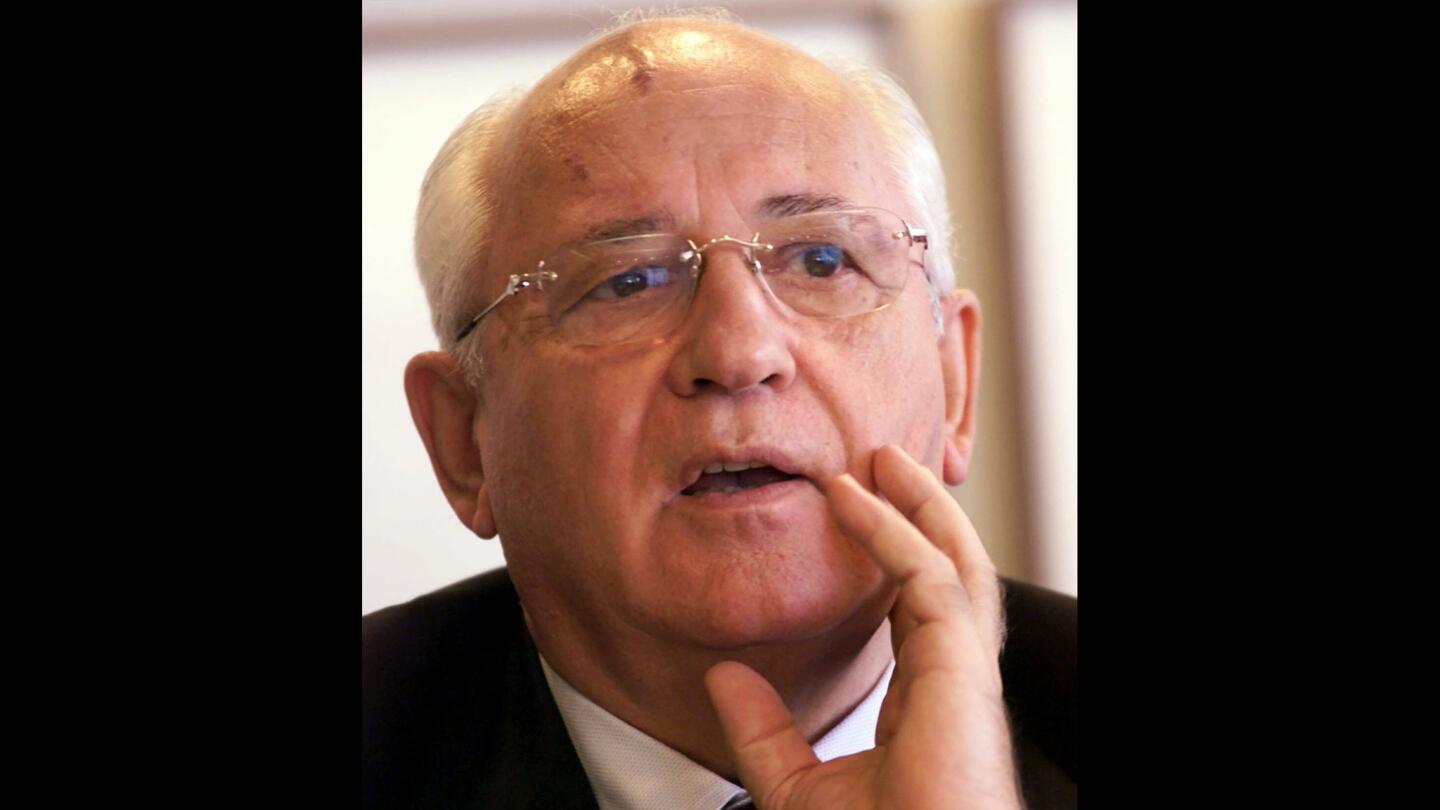
Soviet President Mikhail S. Gorbachev was awarded the peace prize for his role in ending the Cold War, bringing historic changes to Europe and promoting international disarmament. (Ed Bailey / Associated Press)
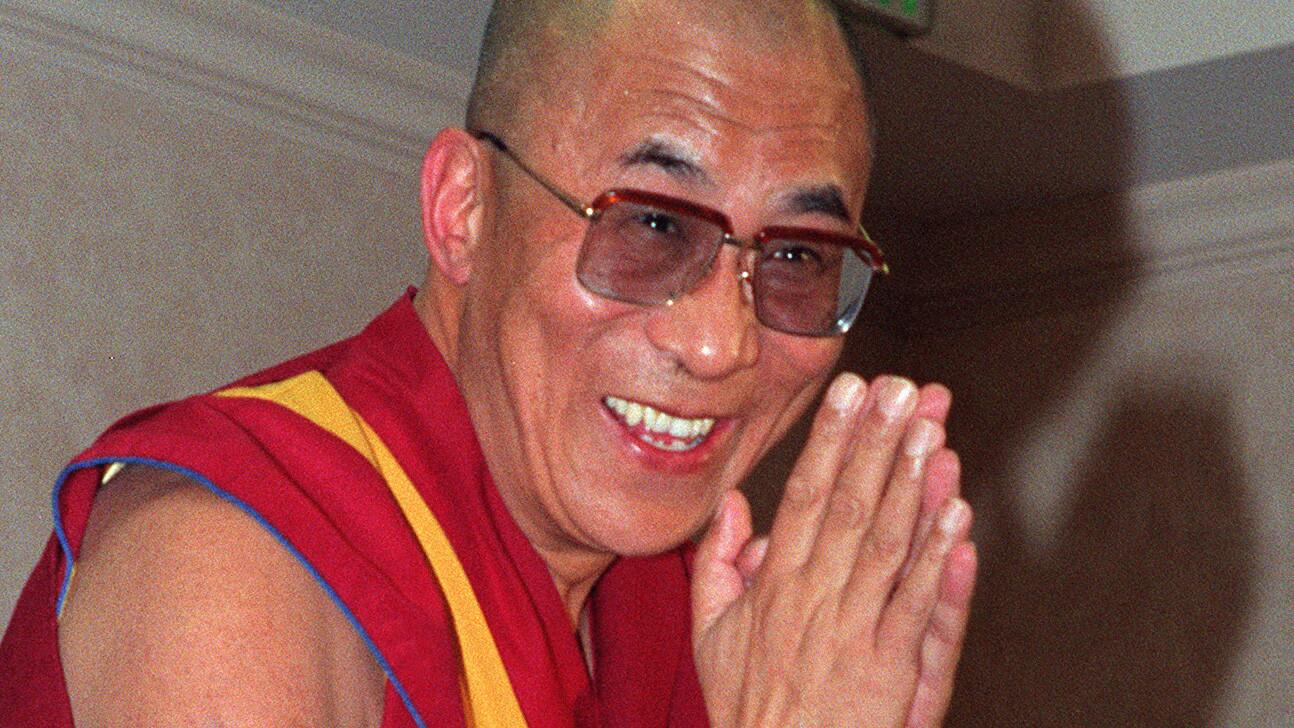
The Dalai Lama, exiled spiritual leader of Tibet, was cited for his nonviolent struggles to regain autonomy for his homeland from China and his advocacy of “peaceful solutions based upon tolerance and mutual respect in order to preserve the historical and cultural heritage of his people.” (Wade Byars / AFP / Getty Images)
Advertisement
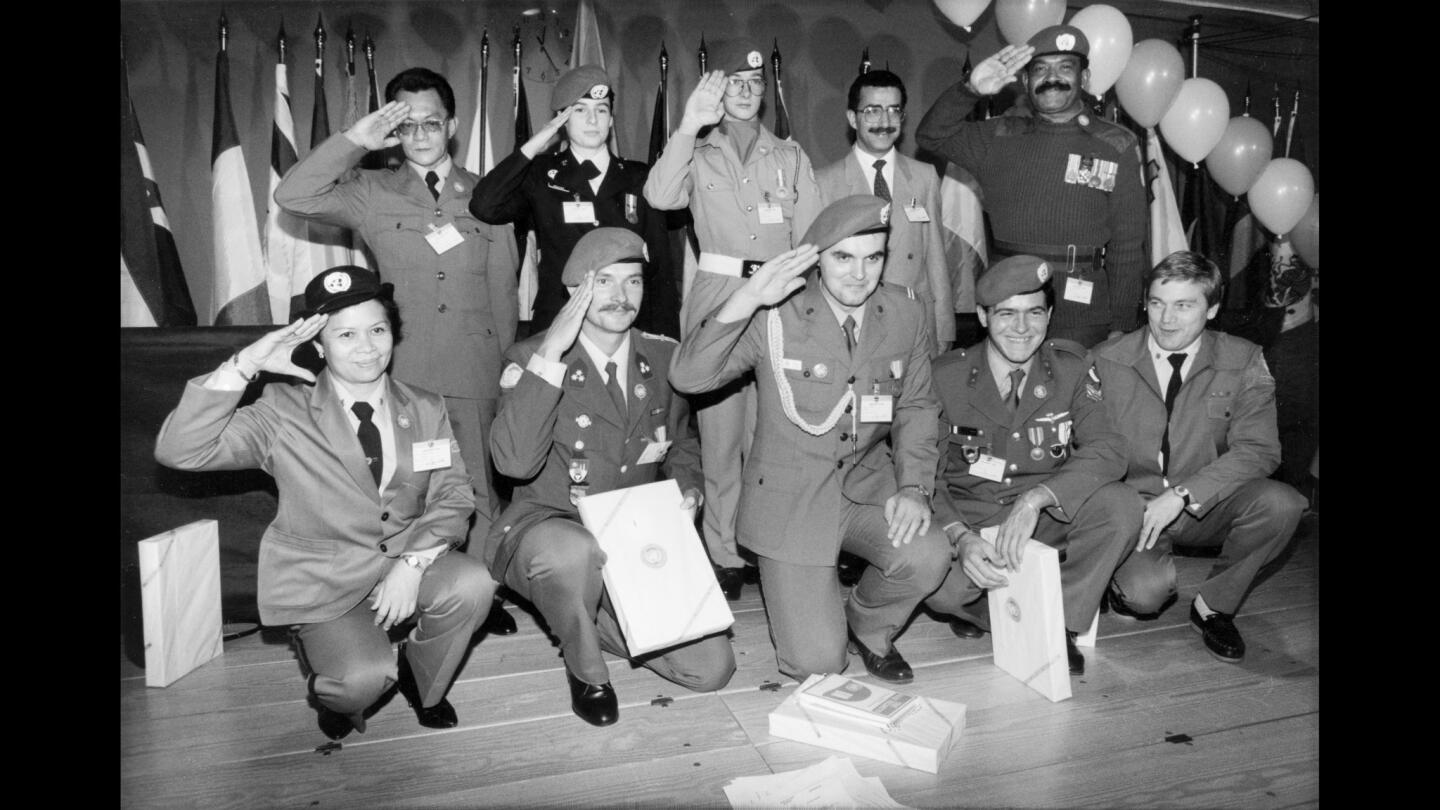
The Nobel committee said the peacekeepers “have, under extremely difficult conditions, contributed to reducing tensions where an armistice has been negotiated but a peace treaty has yet to be established. “In situations of this kind, the U.N. forces represent the manifest will of the community of nations to achieve peace through negotiations, and the forces have, by their presence, made a decisive contribution towards the initiation of actual peace negotiations.” Above, members of the forces celebrate the award at the United Nations in New York: front row from left, Violeta Pelena of the Philippines, Master Cpl. Gerard Crappinger of Austria, Maciej Wlynski of Poland, 1st Sgt. Osvaldo Moi of Italy and Kenneth Eriksson of Sweden; back row from left, Guillermo Matibag of the Philippines, Pvt. Mary Boucher of Canada, Daryl Linwood of Britain, Majed Kreitem of Jordan and Pvt. Onisivoro Koroidiliva of Fiji. (Charles Wenzelbert / Associated Press)
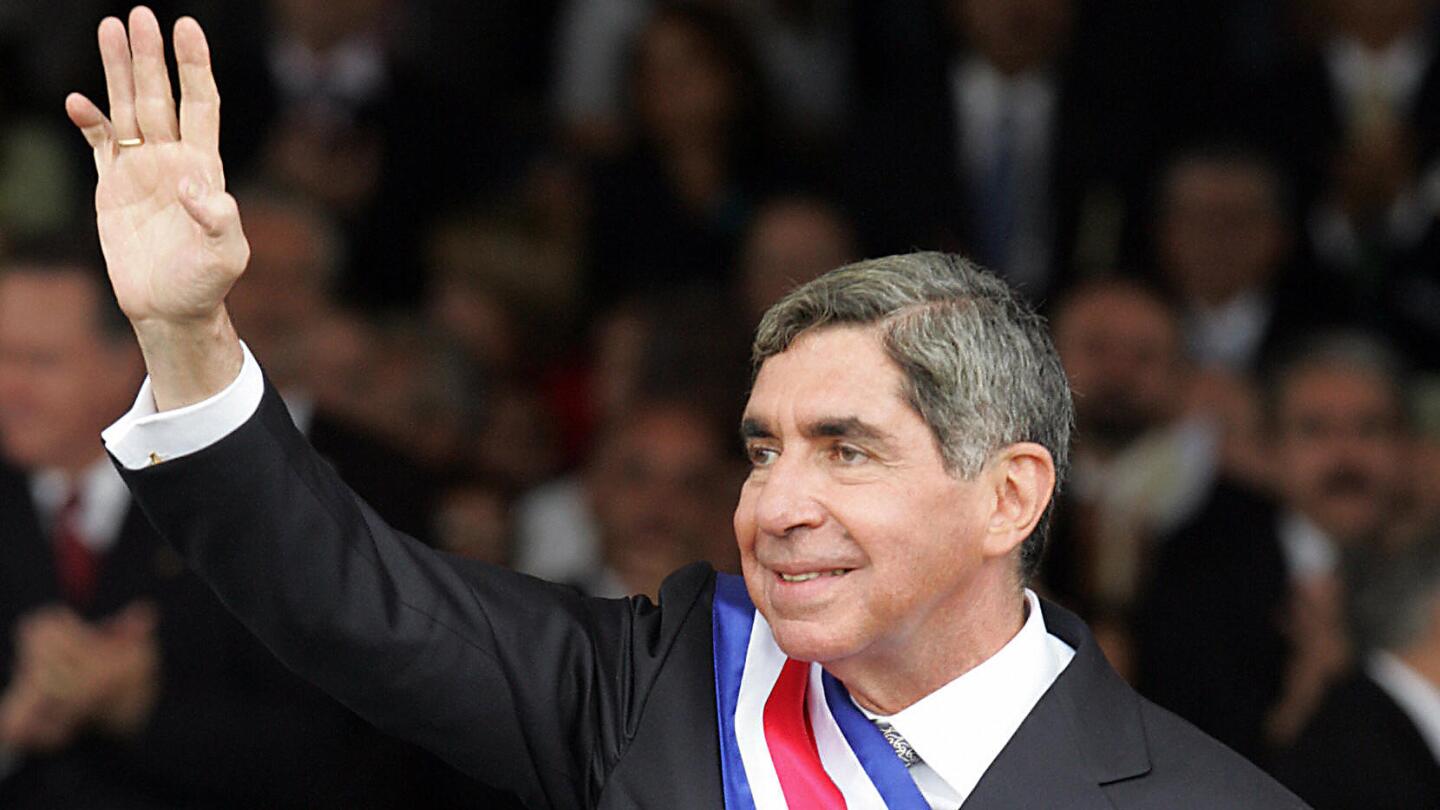
President Oscar Arias Sánchez of Costa Rica wrote a peace plan for his war-torn Central American neighbors and persuaded their leaders to sign it. As the main architect of the peace plan, President Arias made an outstanding contribution to the possible return of stability and peace to a region long torn by strife and civil war, the Nobel committee said. (Orlando Sierra / AFP / Getty Images)
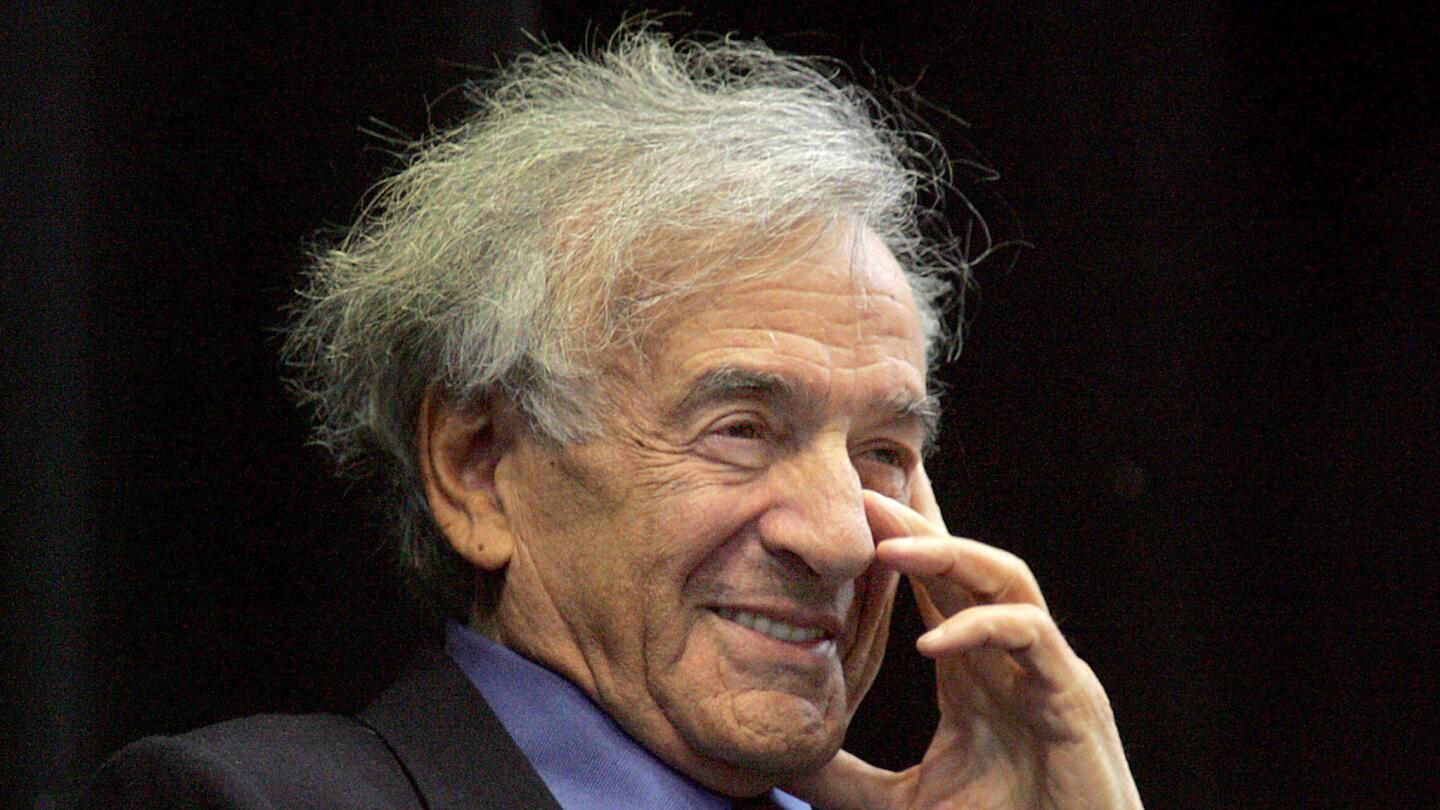
Elie Wiesel, the concentration camp survivor who became the literary conscience of the Holocaust, was awarded the peace prize for his message to mankind of “peace, atonement and human dignity.” (Francine Orr / Los Angeles Times)
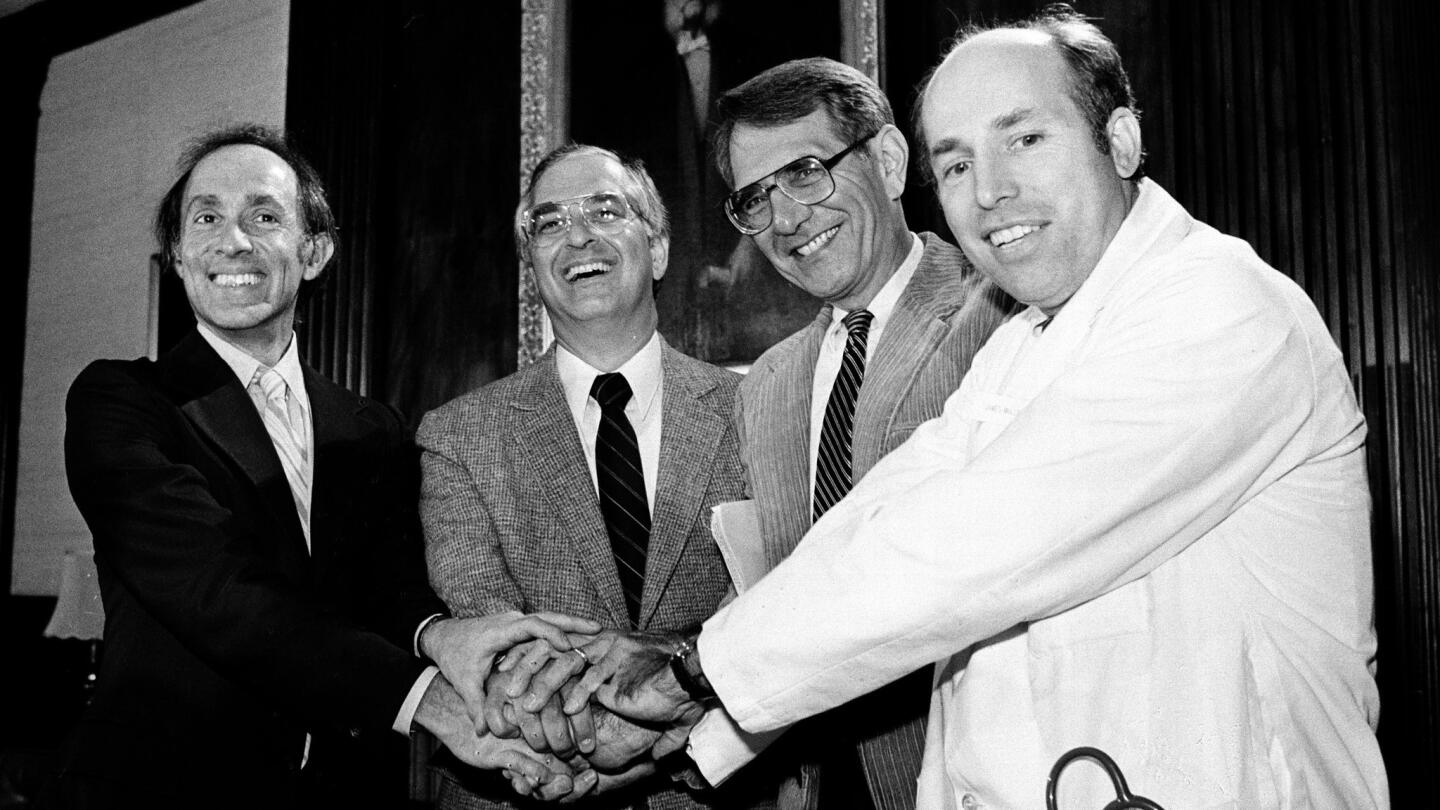
International Physicians for the Prevention of Nuclear War, an anti-war organization of 145,000 medical personnel in 41 countries, was founded by American and Soviet doctors. “It is the committee’s opinion that this organization has performed a considerable service to mankind,” said the Nobel panel’s citation, crediting the group with “creating an awareness of the catastrophic consequences of atomic warfare.” Above, members of the group at its Boston headquarters after the prize was announced: from left, Eric Chivian, co-founder; John Pastore, secretary; Sidney Alexander, president of the U.S. affiliate group; and James Muller, co-founder. “It is the committee’s opinion that this organization has performed a considerable service to mankind,” said the Nobel panel’s citation, crediting the group with “creating an awareness of the catastrophic consequences of atomic warfare.” Above, members of the group at its Boston headquarters after the prize was announced: from left, Eric Chivian, co-founder; John Pastore, secretary; Sidney Alexander, president of the U.S. affiliate group; and James Muller, co-founder. (Paul R. Benoit / Associated Press)
Advertisement
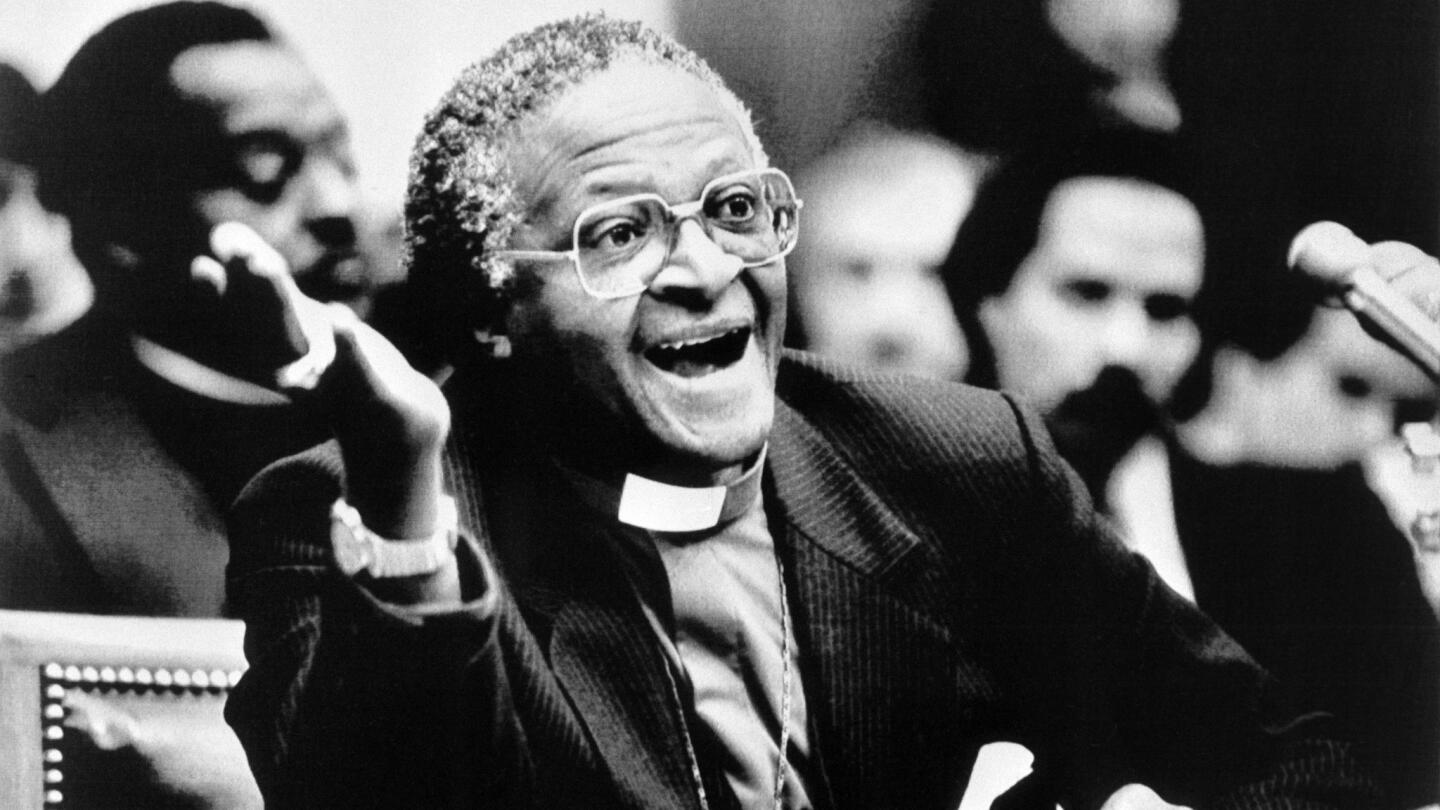
Bishop Desmond Tutu, secretary-general of the South African Council of Churches, was called “a unifying leader figure in the campaign to resolve the problem of apartheid in South Africa.” “The means by which this campaign is conducted is of vital importance for the whole of the continent of Africa and for the cause of peace in the world,” the Nobel committee said. “Through the award of this year’s peace prize, the committee wishes to direct attention to the nonviolent struggle for liberation to which Desmond Tutu belongs, a struggle in which black and white South Africans unite to bring their country out of conflict and crisis.” (David Tulls / AFP / Getty Images)
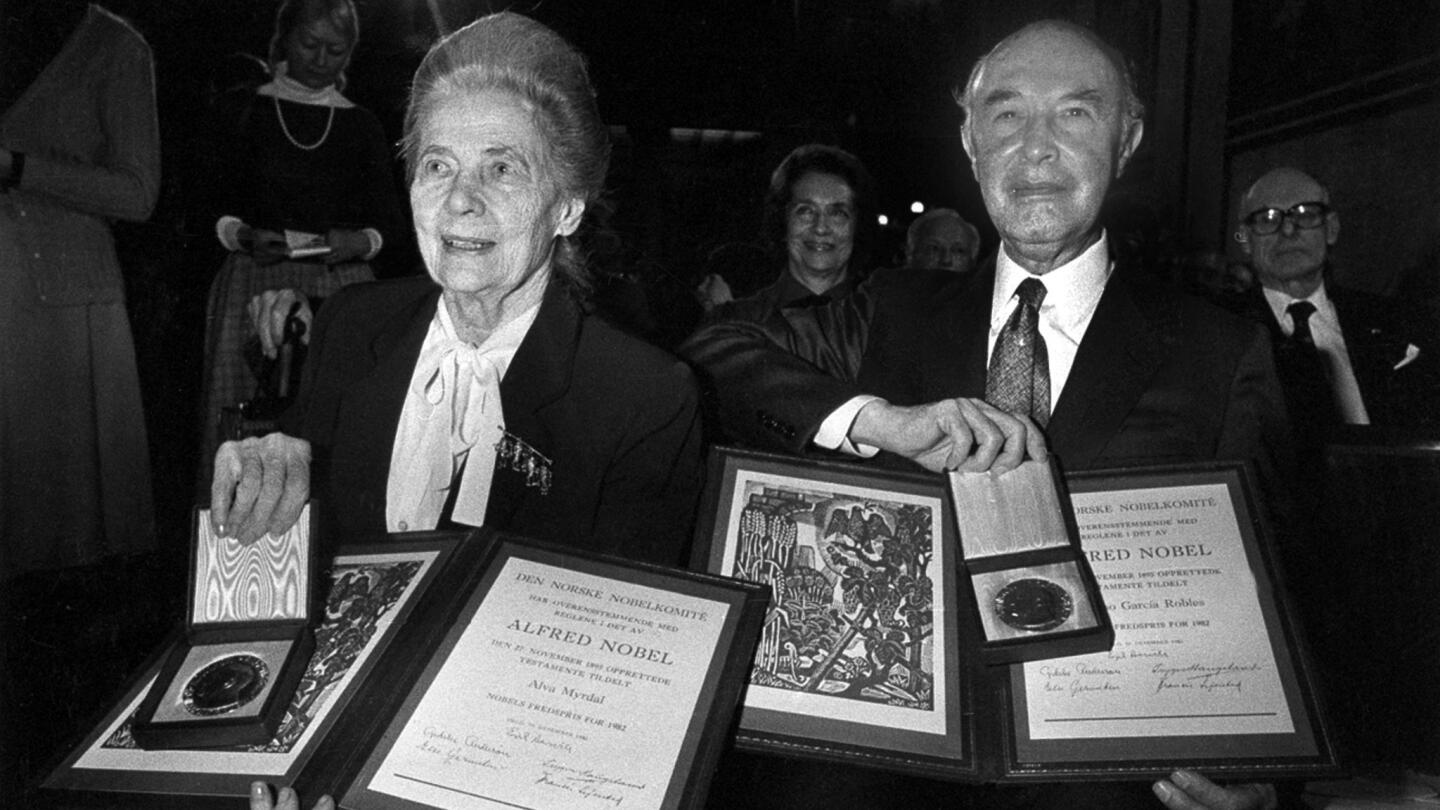
Alva Myrdal of Sweden and Alfonso García Robles of Mexico were delegates to U.N. disarmament talks in Geneva. The two “helped to open the eyes of the world to the threat mankind faces in continued nuclear armament.” (Jens O. Kvale / Associated Press)
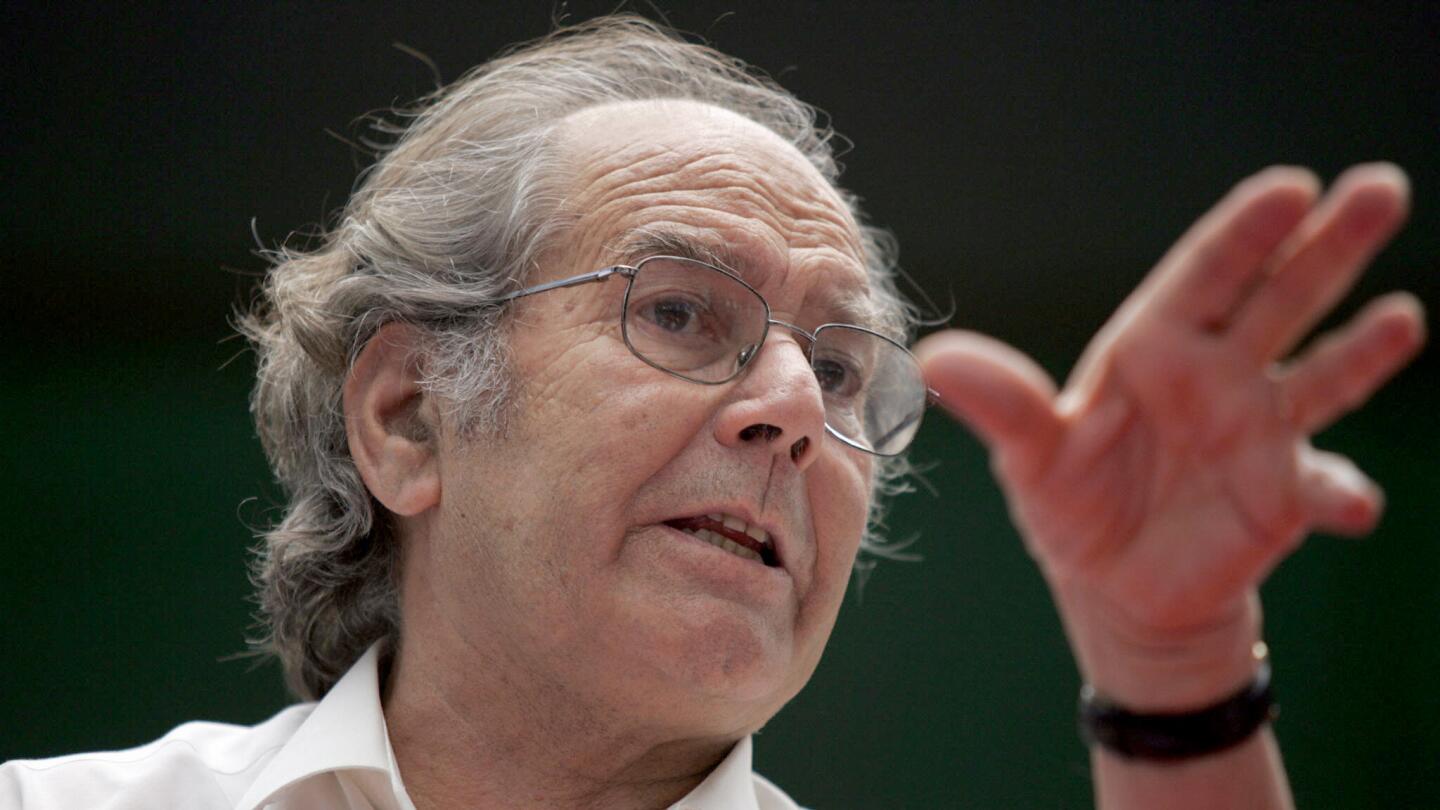
Adolfo Pérez Esquivel, architect, sculptor and leader of the Peace and Justice Service human rights organization in Argentina, won the prize for his work on behalf of the “disappeared” during the countrys 1976-83 military dictatorship. Pérez Esquivel was among Argentinians “who have shone a light in the darkness,” the Nobel committee said. “He champions a solution of Argentina’s grievous problems that dispenses with the use of violence, and is the spokesman of a revival of respect for human rights.” (Orlando Sierra / AFP / Getty Images)







